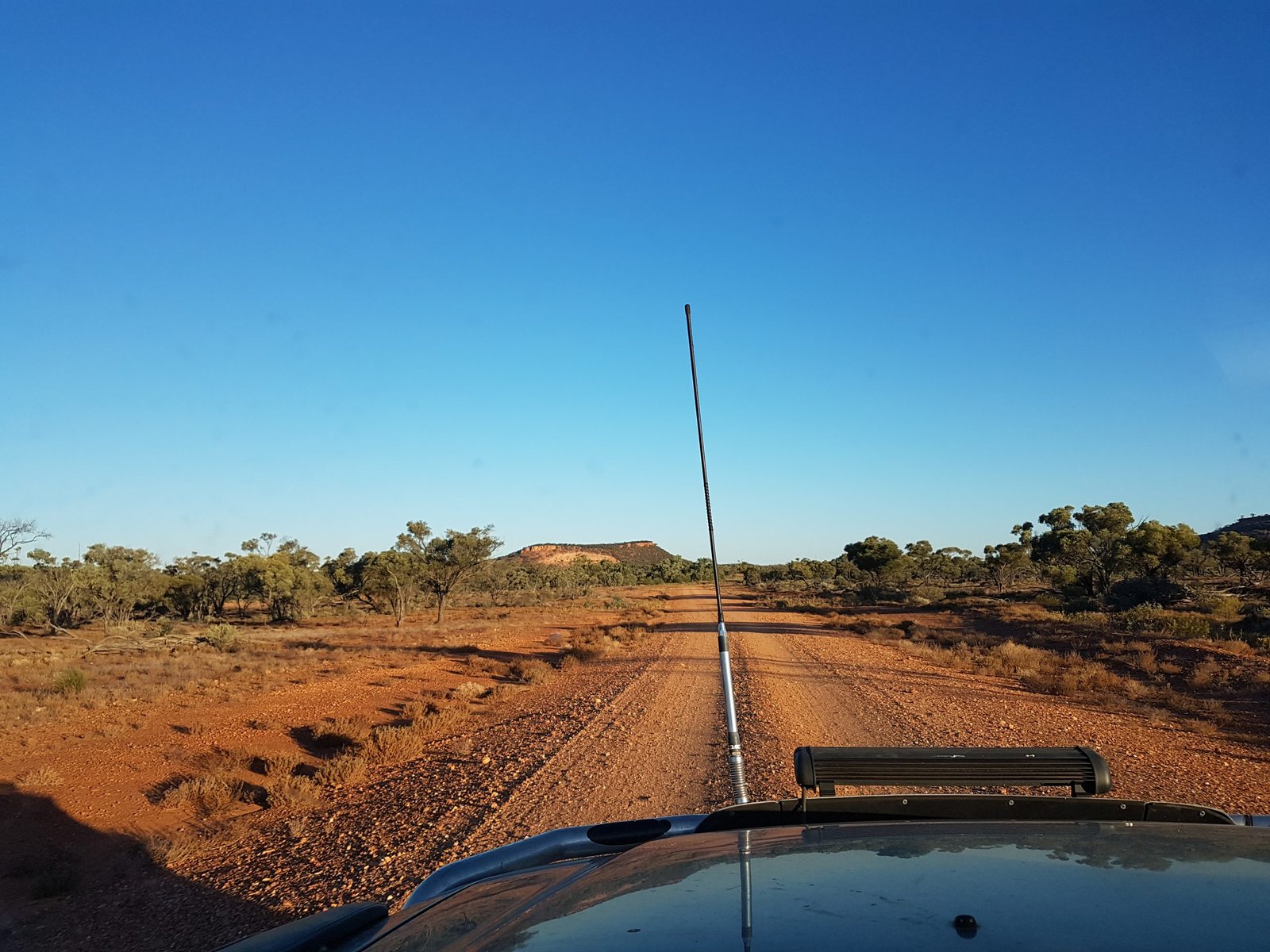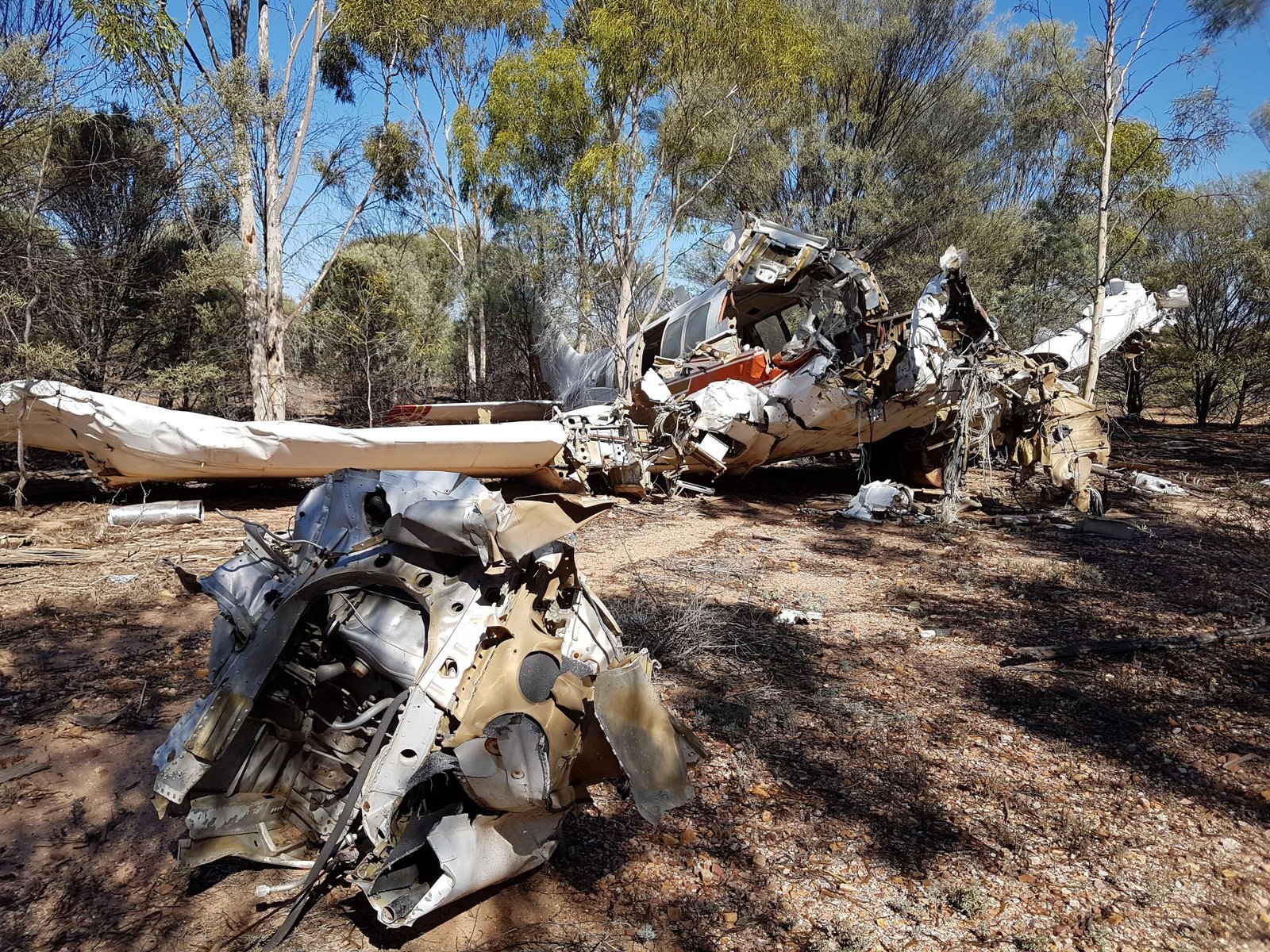Andy’s place is called Navarra. It’s a 60,000 acre sheep and cattle station in the Barcoo, with blue and red hills looming in the distance. Down around the house it’s gidgee country: low gidgee trees and burr on the ground; there are patches of boree and up the back, behind the hills, there’s red mulga country. The sky is high and the air is clear; you feel very small and very peaceful.
I’d been lucky to catch Andy at home, because his partner Mary has been down on the east coast getting cancer treatment for some time. She had been away for months, and Andy would regularly make the 1200km journey to spend weeks with her at a time. When I’d called from Mitchell, he’d just come back to Navarra after a few weeks away.
You can’t really turn your back on a property like Navarra for too long, so they had caretakers as well. These were Caroline and Greg – a retired couple who had brought their caravan and kept things together while Andy was away.
The household was completed by Nutmeg the dog (a total sweetheart) and Henry (a violent, abusive cockatoo who had been run out of Longreach by the town council). I felt immediately at home.

‘I’ll have you…’ says Henry.
I also felt very well-fed.
When I arrived at Navarra, I was hungry. Ravenously hungry, all the time. I don’t think I’d been eating enough while I was on the road. I was feeling a bit skinny.
That didn’t last for long. Andy told me that he wasn’t a good cook ‘but I don’t go hungry’; he turned out to be the master of cooking enormous chunks of mutton by putting them in the oven frozen and going away for a couple of hours to produce juicy, flavourful perfection. Caroline kept feeding me up on her cold corned beef sandwiches, which were so good that I had to ask for the recipe for the corned beef. And Navarra had exciting things like a kettle and a biscuit jar, which suddenly looks like luxury when you’ve already resigned yourself to the hobo life.
My goodness, I thought, they’ll never get rid of me, and had another biscuit.
I’d decided to have a rest day at Navarra and wash my clothes, but that afternoon Andy announced that he had to drop a pump over to Ray. Would l like to come along and see some of the country? Of course I would. I couldn’t get enough of this red earth and blue sky; and these days my whole life is a road trip anyway.
So I jumped in the ute and we headed vaguely south-west, through the sheep and cattle stations. Andy had spent his whole life in this country: we were actually heading for Trinidad Station, where he’d grown up, and where we would stay the night with his mother Margaret before continuing onto Ray in the morning.

He gave me a guided commentary to the country as we drove. We went past Welford Lagoon, named after an early pastoralist – the son of an English judge – who had been killed by an Aborigine. Well, Welford Lagoon isn’t the place where Welford was killed, it’s the place where most of the local Aboriginal people were rounded up and massacred in retaliation for his death.
As we headed into Trinidad, Andy pointed out the hills where he used to ‘go out with the goats’ as a small child of four or five years old. The goats around here are mostly feral, mongrel creatures but Andy’s family had used them for milk and meat so I suppose you might have called these ones semi-domesticated. Each day the goats would head out into these precipitous hills to feed and do whatever goats do. Andrew, too young for the school room, was free to do as he pleased and often that would involve jumping on the back of one of the goats (you had to choose carefully, he said, some would wipe you off on a tree before you could blink) and going out with the herd to wander around in the outback all day. The goats would come back at dark, small child with them.
We arrived at the main house on Trinidad before sunset and were just sitting down for coffee and biscuits (more biscuits!) with Andy’s mother Margaret when the UHF radio crackled into life. It was Andy’s sister, Wendy.
“I’m up near the airstrip. Can you bring water?” Wendy said.
“Water? What kind of water?” asked Margaret.
“How much water?” said Andy. “Water for drinking?”
“Water for putting out a fire…” said Wendy.
Oh, no worries. Andy and I legged it out to the car and headed up to the airstrip with water. When we got there, we found Wendy half under a smouldering vehicle, dragging bits of blackened grass and sticks out of the bash plate. The rifle and the camera were out on the ground at a prudent distance – save the valuables first – but she had the situation under control. A bit of extra water and it was sorted.
Andy and I headed back down to the house as the sun went down, past the red and white wreckage of a plane that had crashed off the end of the airstrip some decades ago. It was a charter plane for drilling contractors working nearby, and the pilot had forgotten to put his landing gear down. There were gouges in the airstrip where the propellers had dug in; the pilot had tried to pull up again but the plane crashed into the scrub a short way off the landing strip.
Andy remembered hearing it go down – they could hear the plane coming into land, and something didn’t sound right, and his mother said, ‘that plane is going to crash’. She was right.
The nose of the plane had been ripped off and the air was filled with a mist of aviation fuel. Andy remembered seeing a battery among the broken pieces of fuselage, and the arcing of electricity in the middle of the av gas mist. They got all the passengers out and then backed up the Landcruiser to extract the pilot from the destroyed nose of the plane. He was in a bad way. ‘We didn’t know if we were saving him or killing him,’ Andy said, but there was fuel everywhere; the whole thing could go up any second. They got the pilot out and into the hands of the Flying Doctor. He was in a coma for weeks, but I am told that he eventually woke up.
Apparently the insurance company wanted to pay Andy’s family to bury to the wreckage, but Margaret refused. She wanted the wreckage to stay there as a reminder to every plane coming into the landing strip – to put their landing gear down.

